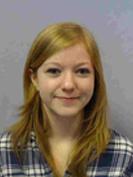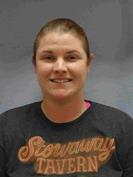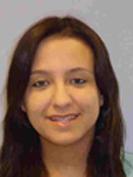Celebration of Scholars
THE EFFECTS OF POTASSIUM CHLORIDE ON REACTIVE ASTROCYTOSIS IN AXON GROWTH PERMISSIVE AND INHIBITORY ASTROCYTE CELL LINES
 Name:
Victoria Lumbert
Name:
Victoria Lumbert
Major: Neruoscience and Biology
Hometown: Oswego, IL
Faculty Sponsor:
Other Sponsors:
Type of research: Independent research
 Name:
Leslie Krause
Name:
Leslie Krause
Major: Neuroscience and Psychology
Hometown: Kenosha, WI
Faculty Sponsor:
Other Sponsors:
Type of research: Independent research
 Name:
Allison Rendon
Name:
Allison Rendon
Major: Neuroscience and Psychology
Hometown: Chicago, IL
Faculty Sponsor:
Other Sponsors:
Type of research: Independent research
Abstract
In response to central nervous system (CNS) injury such as a stroke, astrocytes undergo a series of cellular and molecular changes referred to as reactive astrocytosis. These changes range from mild to severe hypertrophy, proliferation, and upregulation of glial fibrillary acid protein (GFAP) expression, and may be modeled in cell culture by disrupting potassium homeostasis. The role of reactive astrocytosis in CNS injury remains debatable, with previous research suggesting that it may have beneficial effects, such as sequestering inflammation, and detrimental effects, such as inhibiting axon regeneration. To further our understanding of reactive astrocytosis, our studies characterize this process in two complementary CNS astrocyte cell lines: A7 cells, which are axon growth permissive, and Neu7 cells, which are axon growth inhibitory. Consistent with the role of reactive astrocytosis in inhibiting axon regeneration, we hypothesized that inhibitory Neu7 cells would be reactive under standard culture conditions and less susceptible to astrocytosis induced by increased extracellular potassium chloride. Conversely, we hypothesized that permissive A7 cells would be more susceptible to potassium chloride. Our results suggest that exposure to potassium chloride produces time- and dose-dependent increases in hypertrophy, proliferation, and GFAP expression in A7 and Neu7 cells. Continued characterization of reactive astrocytosis in A7 and Neu7 cells may provide unique models for defining the role of astrocytes in CNS injury, including elucidation of novel therapeutic targets for stroke.Submit date: March 15, 2016, 2:11 p.m.
